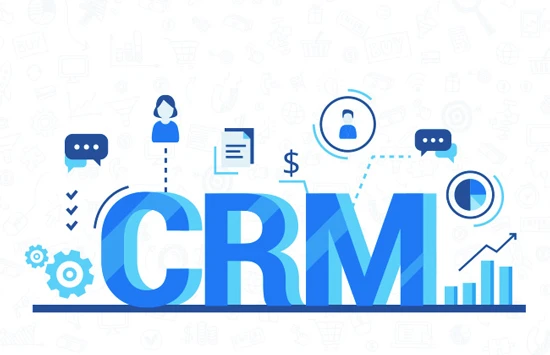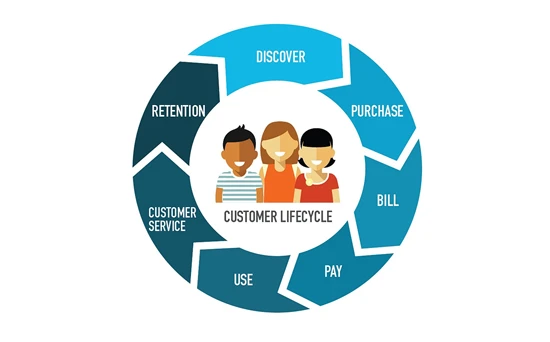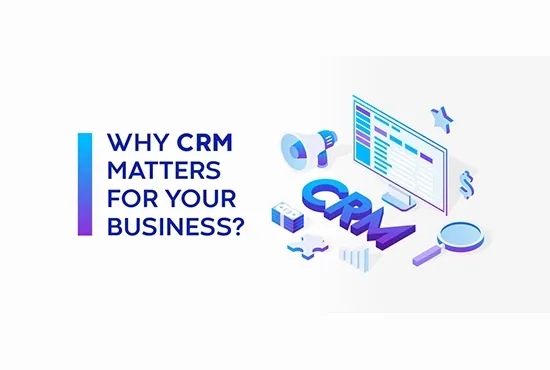We operate in a global community that buys, sells, and communicates in countless ways. Our competitors are everywhere, and barriers to entry are low, leading to increased competition intensity. Commodification is happening at breakneck speed. Satisfied customers bring in more customers from all over the world... and dissatisfied customers broadcast their unhappiness far and wide. Companies and professions rise and fall via Twitter, Yelp, and LinkedIn.
Customer Relationship Management (CRM) is the process of tracking and analyzing all interactions with your current and prospective customers. CRM software is a tool that centralizes, simplifies, secures, and scales customer engagement. What's in it for you?
Reason #1: Direct Business Insight
Within the context of your ERP (Enterprise Resource Planning) and/or financial systems, a CRM system provides forward-looking insight into trends and events that will be leading indicators of your profitability and key performance indicators.
CEOs and CFOs will use CRM dashboards to monitor these leading indicators. They may look for changes in lead generation, opportunity creation, or channel value to identify early indicators of future top-line problems. This allows for a proactive approach to business management.
A sales leader will have access to sales reporting tools. They will need to see the activities of individual salespeople or teams and investigate problems that may be impacting profitability, including territory coverage, lead generation activity, lead conversion rate, and opportunity close rate.
A marketing leader will need to track marketing activities and campaigns and adjust the marketing plan based on the success or failure of those activities.
A customer service leader needs to see which of their people are most efficient at closing cases, be prepared to act on cases exceeding expected resolution times, and monitor escalations.
A product manager should monitor cases to understand any product defects, support manual gaps, or feature requests that might lead to better products and services.
Reason #2: Business Growth
Lead generation is not just a sales activity but a collection of manual and automated activities across multiple channels that result in a lead or opportunity. You can use CRM to capture leads from your website, email campaigns, bring in leads from seminars, webinars, conferences, or trade shows and hand these qualified leads directly to your sales team. You can route these leads to your representatives to engage them while your business is still top of mind.
You may use a Customer Management System to guide salespeople to upsell or cross-sell activities. You can leverage CRM to identify new products or market opportunities. You can use CRM software to easily increase the efficiency of your sales team so that they can increase top-of-funnel opportunity creation. Successful companies are increasingly turning to inbound marketing, which is using websites and search engine optimization in combination with a content program to convert audiences from prospects to committed customers.
Reason #3: Repeating Best Practices
You undoubtedly have ideas about how to best engage with your customers. You probably want to ensure you’re creating a high-quality customer experience.
CRM systems can be used to codify your best sales or service processes, guiding your people through their interactions with each customer. Templates can be used to guide your people through complex processes. Workflow automation can be used to automate activities to ensure best practices are followed while also reducing the overhead costs of managing CRM.
Reason #4: Higher Returns
Often, our customers say one of the main reasons they buy CRM software is that they believe they are under-serving their customers. Just this past week we had two customers from completely different industries that articulated the same problem: 80% of their customers come from 20% of their business, and they know this well.
However, they had no idea what the other 80% of their customers were doing and thought there were opportunities for growth. Many organizations want to find high-return ways to reach the “long tail” of their market. Marketing automation and CRM can make reaching the long tail—which might otherwise be too low-return for your organization's resources—possible.
Your people’s ability to juggle tasks, opportunities, cases, communications, and ever-increasing information won't be good without the right tools. CRM is key to helping them manage their complex world without disappointing customers.
Reason #5: Risk Management
One of our customers told a story about a sales representative who left their post and when the new representative took over, found many examples of customers who had never been contacted. I've seen many situations where a sudden job change causes deals to fall through, tanking sales targets and resulting in unhappy prospects who simply go elsewhere.
When turnover in sales or customer service is high, it really only takes a few minutes to do an overall edit task in task assignment and management to shift accounts and opportunities to different sales or support representatives. This allows us to seamlessly transition responsibilities without customer disruption.
We have another customer who went to court over a case where a former employee downloaded and took a client list. CRM helps you keep tabs on these events and create an audit trail to make it easier to control sensitive information.
Reason #6: Customerization
Customerization is tailoring your product, service, and even customer engagement processes to fit the customer’s business or industry. For many companies, especially small and medium-sized organizations, this is an effective way to compete in a crowded competitive landscape that is difficult for larger organizations to imitate. CRM software
can capture detailed information about your customers and their behavior and enable targeted marketing, product development, and sales activities. It can enable you to create an illusion of personalization with every interaction. Think about it this way: Do you really think your dentist remembers your birthday, or do you think they have software that tells them? Do you think it’s a coincidence that Google ads show you things related to your interests, or do you think they have software that does this? CRM can create the perception for your customers that you understand their needs and preferences—and it does so scalably so you can remember these things for thousands of customers at any given time.
Why Your Business Needs a CRM?
You need a Customer Relationship Management System (CRM) to make your business more efficient and increase your revenue per employee. You need CRM software to create repeatable successful processes. You need CRM software because we (and your competitors) are vying for a competitive advantage in a multi-channel customer environment. You need to keep track of customer preferences, which are increasingly complex and indifferent to our old ways of marketing and selling. You need a CRM to look into your near future and predict your profits. You need this software to reduce the risk and cost of employee turnover. To be in a cycle of continuous improvement. You need CRM to save your business.




